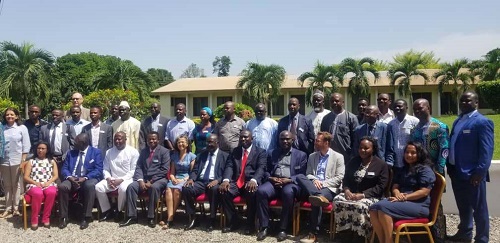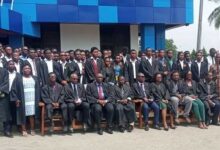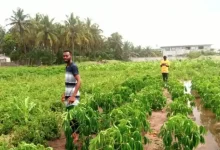
The Food and Agricultural Organisation (FAO) has pledged to support Ghana to effectively manage its forest and combat climate change.
According to the Secretary to the African Forestry and Wildlife Commission of the FAO, Nora Berrahmouni, the FAO was determined to build the capacity of local communities on the know-how quality tree seedlings in order to help restore degraded forests in the country.
She said community members would be in a better position to choose what they would want to plant on their land which would go a long way to create employment in the forestry sector.
“Our focus is to involve local communities in forest restoration to be integrated into the tree seed systems to ensure that quality planting materials in Ghana and Sub-Saharan Africa to improve livelihoods at the long run,” she indicated.
Ms Berrahmouni was speaking to the Ghanaian Times, here, at the sidelines of a three-day regional workshop.
It had the theme, ‘Conservation and use of forest genetic resources in-Sub Saharan Africa: Strengthening tree seed systems.’
Organised by the Biodiversity International and FAO of the United Nations, the workshop brought together delegates from 32 countries including Burkina Faso, Cameroun, Ethiopia, Ghana, Guinea, Italy, Madagascar, Senegal, Mali, Niger, Nigeria, South Africa and Tanzania.
The Forestry Research Institute of Ghana of the Council for Scientific and Industrial Research (CSIR-FORIG), Fumesau, near Kumasi in the Ashanti Region hosted the event.
The forum discussed challenges in the implementation of the regional strategy and identified ways to promote it, fundraising opportunities for the Sub-Saharan Africa Forest Genetic Resources Programme (SAFORGEN), and Ghana’s commitment to restore two million hectares of degraded forest lands.
It further discussed ways to end poverty in all forms, achieve food security, improve nutrition and promote sustainable agriculture, among others.
Earlier, Ms Berrahmouni, pledged the support of the FAO to 28 African countries, including Ghana, which had pledged to restore over 100 million hectares of forest lands under the Africa Forest Landscapes Restoration Initiative (AFR100) coordinated by the New Partnership for Africa’s Development (NEPAD).
She noted that the sustainable and appropriate use of forest genetic resources was crucial for achieving the goals of the United Nations’ strategic plan for reversing the loss of forest cover worldwide through sustainable forests management – including protection, restoration, afforestation and reforestation; and increase efforts to prevent degradation and contribute to the global effort of addressing climate change.
“The conservation and sustainable uses of genetic diversity of forests and trees outside forest is relevant to other goals related to the enhancement of economic, social and environmental benefits through agroforestry and contribution of forests to poverty eradication and livelihoods,” she said.
Professor Daniel Aniagyei Ofori, Director of CSIR-FORIG, observed that the tree seed system was a major component of the institute’s research programme, stressing that the output of the workshop would contribute to achieving Sustainable Development Goals (SDGs), notably SDG 15 to protect, promote sustainable use of terrestrial ecosystems, combat desertification and halt biodiversity loss, among the lots.
In an address read on his behalf, the Ashanti Regional Minister, Simon Osei Mensah, proposed solutions to curb deforestation in the sub-region such as regulating the logging industry, developing forest protection schemes and addressing human activities that promote deforestation.
Mr Osei Mensah called for capacity building for organisations and individuals involved in the tree seed system, as well as equip them with facilities and adequate funds.
FROM KINGSLEY E. HOPE, FUMESUA






